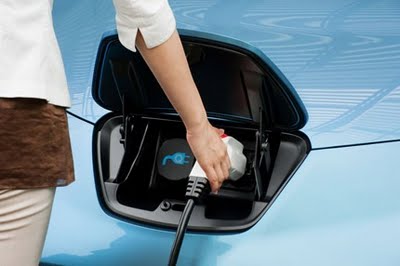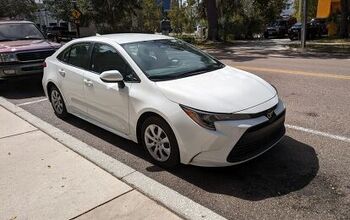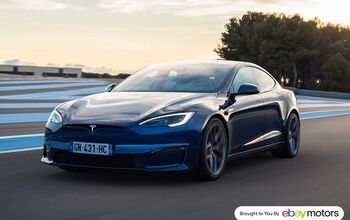Japan Tackles Electric Car Infrastructure Predicaments. Manufacturers Lower Prices

Japan appears to get extremely serious about all-electric cars. What stands in the way of their success? Apart from the price (we’ll get to that later:) It’s the infrastructure, stupid. Fabricating, fuelling, and fixing an ICE-powered car is supported by an infrastructure that had more than 100 years to grow. Keeping a plug-in running needs an infrastructure to guarantee mobility away from the charger at home. Japan’s Environment Ministry teams up with Nissan, Sumitomo, and other companies to build the infrastructure for electric vehicles, reports The Nikkei [sub].
Apart from the most obvious – building charging stations – there are some solutions to questions that haven’t been addressed so far. Don’t worry (or do) those questions will surely come up. For instance, what happens if you are on the road and run out of juice? With an ICE, you can trek to the next gas station, and come back with a gallon or two. With a plug-in? Currently, you need a tow. Think about it. You’ll develop a serious case of range anxiety if you think this through.
To solve that issue, Nissan will develop a truck that will give emergency charges – good for 10km or 6 miles – to electric cars that strayed too far from a plug. Then, drivers can use their car navigation system, co-developed by Nissan and Yasukawa, that shows them the way to the nearest charging station.
Orix Auto will help design a car-sharing system.
Nissan will also test a system for collecting and recycling lithium ion batteries together with NTT Facilities and Sumitomo.
Did we mention price? There is movement on that front also. In a separate story, The Nikkei [sub] sees signs “of an emerging price war in electric vehicles.” Mitsubishi Motors will lower the suggested retail price of its i-MiEV by about 620,000 yen ($6,700.) The new price is 3.98m yen ($43,000.) After generous government subsidies, the car will cost 2.84 million yen ($30,000). Nissan answered that their Leaf electric car, which will come out in December, will cost 2.99 million yen ($32,000) after subsidies are deducted. Jeez, that’s what the car will cost in the U.S.A. before subsidies are deducted.
Mitsubishi just began full retail sales of its i-MiEV. Their planning is conservative. They want to sell 9,000 in the new fiscal year that begins April 1. Nissan is more aggressive. They want to produce about 50,000 Leafs a year in Japan, and plan to begin mass production in the U.S. in 2012 and the U.K. in 2013.
Nevertheless, price remains a serious issue. Said Koji Endo, managing director at Advanced Research Japan: “For electric vehicles to really catch on, the actual cost for consumers needs to be 2 million yen or less.” That would be around $21,000, and sounds about right.
Government subsidies will not last forever. Also in Japan, customers need to wait three to six months until they get their subsidy, which means that they have to front 4 million yen. That and the pesky infrastructure problems will make the all-electric plug-in much less than a run-away hit for the foreseeable future.

Bertel Schmitt comes back to journalism after taking a 35 year break in advertising and marketing. He ran and owned advertising agencies in Duesseldorf, Germany, and New York City. Volkswagen A.G. was Bertel's most important corporate account. Schmitt's advertising and marketing career touched many corners of the industry with a special focus on automotive products and services. Since 2004, he lives in Japan and China with his wife <a href="http://www.tomokoandbertel.com"> Tomoko </a>. Bertel Schmitt is a founding board member of the <a href="http://www.offshoresuperseries.com"> Offshore Super Series </a>, an American offshore powerboat racing organization. He is co-owner of the racing team Typhoon.
More by Bertel Schmitt
Latest Car Reviews
Read moreLatest Product Reviews
Read moreRecent Comments
- SaulTigh Unless we start building nuclear plants and beefing up the grid, this drive to electrification (and not just cars) will be the destruction of modern society. I hope you love rolling blackouts like the US was some third world failed state. You don't support 8 billion people on this planet without abundant and relatively cheap energy.So no, I don't want an electric car, even if it's cheap.
- 3-On-The-Tree Lou_BCone of many cars I sold when I got commissioned into the army. 1964 Dodge D100 with slant six and 3 on the tree, 1973 Plymouth Duster with slant six, 1974 dodge dart custom with a 318. 1990 Bronco 5.0 which was our snowboard rig for Wa state and Whistler/Blackcomb BC. Now :my trail rigs are a 1985 Toyota FJ60 Land cruiser and 86 Suzuki Samurai.
- RHD They are going to crash and burn like Country Garden and Evergrande (the Chinese property behemoths) if they don't fix their problems post-haste.
- Golden2husky The biggest hurdle for us would be the lack of a good charging network for road tripping as we are at the point in our lives that we will be traveling quite a bit. I'd rather pay more for longer range so the cheaper models would probably not make the cut. Improve the charging infrastructure and I'm certainly going to give one a try. This is more important that a lowish entry price IMHO.
- Add Lightness I have nothing against paying more to get quality (think Toyota vs Chryco) but hate all the silly, non-mandated 'stuff' that automakers load onto cars based on what non-gearhead focus groups tell them they need to have in a car. I blame focus groups for automatic everything and double drivetrains (AWD) that really never gets used 98% of the time. The other 2% of the time, one goes looking for a place to need it to rationanalize the purchase.


































Comments
Join the conversation
People will adjust behaviorally to the range thing, they'll plug in where-ever they can, and they won't get stuck. Well, most of them won't. But it will kill a lot of spontaneity. And teenagers and young adults will get stuck. I had a nightmare once about a world of electric cars. @JMO: so let Hawaiians drive EVs! (with apologies to Marie Antoinette)
There is a cure for range anxiety: http://www.evnut.com/rav_longranger.htm